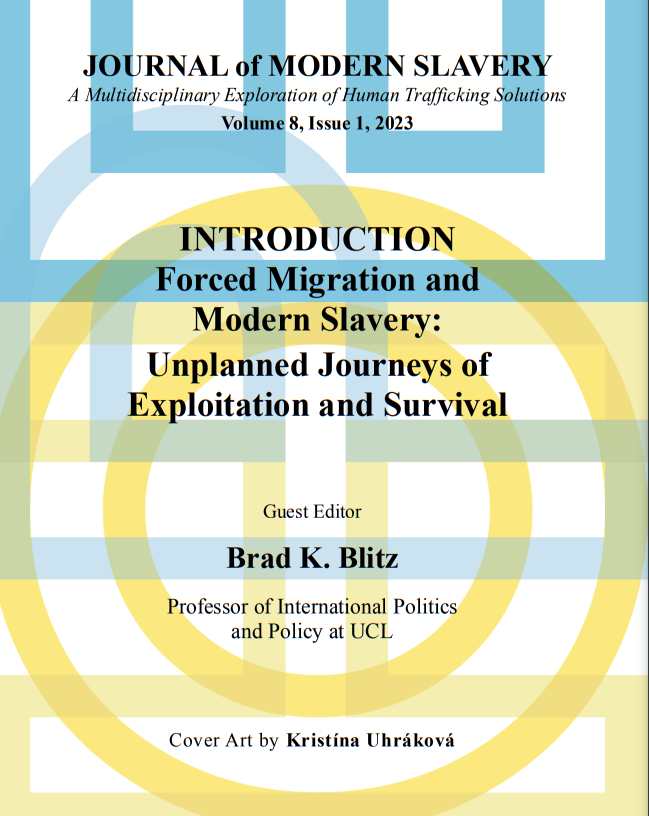In 2021, Tomoya Obokata, the UN Special Rapporteur on contemporary forms of slavery, including its causes and consequences, presented his report on the nexus between displacement and contemporary forms of slavery to the UN Human Rights Council. His report highlighted a 1 number of causal factors such as discrimination, having an uncertain migration status, and exposure to the informal labour market both inside and outside camp settings. This special issue develops the key messages from the UN Rapporteur’s report. It explores the relationship between forced migration, extreme exploitation and vulnerability to contemporary forms of slavery across six countries. While these geographies differ greatly, a unifying concept in this volume is the idea of the migrant journey as an experiential space in which vulnerabilities are structured, restructured, and often exacerbated by political forces, as illustrated in the politics of trafficking, asylum-seeking and the use of detention, and the governance of reception in host countries. Recognizing that displaced people may be exposed to a wide range of slavery-type abuses, including forced labour, domestic servitude, forced marriage, and sexual slavery, this volume focuses in particular on the experience of forced
migration, as the context in which abuses may occur.
migration, as the context in which abuses may occur.

Forced Migration and Modern Slavery: Unplanned Journeys of Exploitation and Survival- Journal of Modern Slavery, 2023
DOWNLOAD
